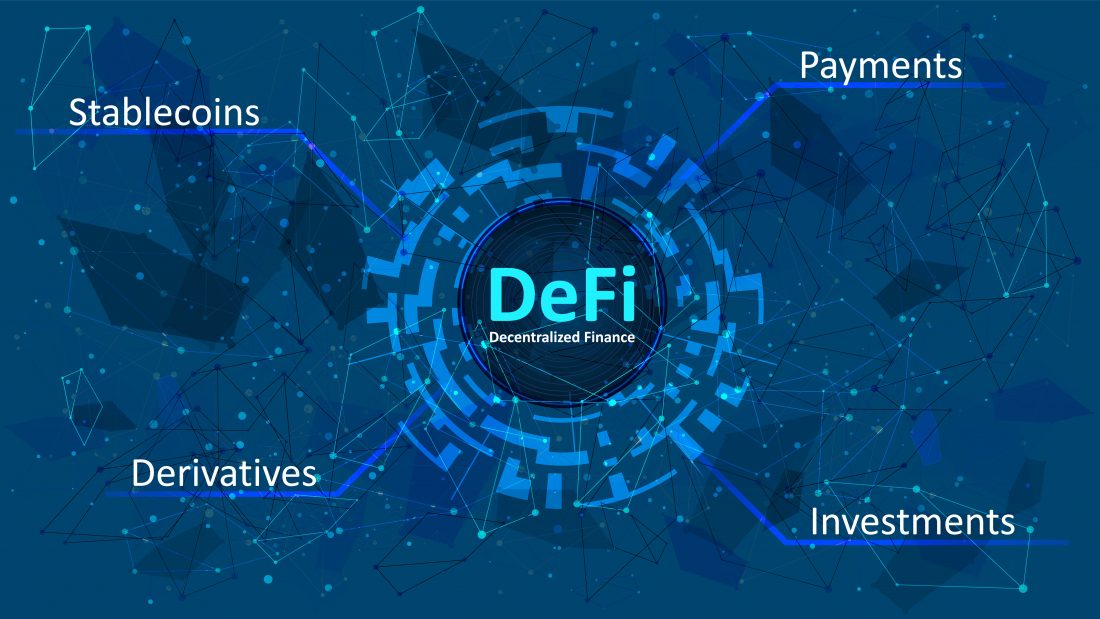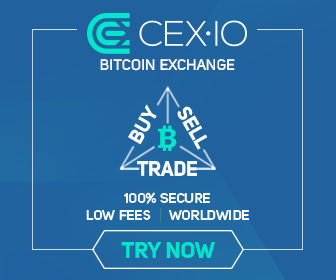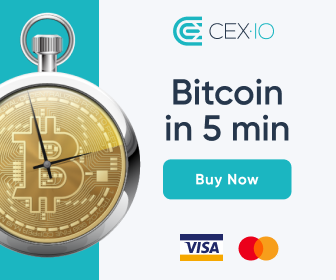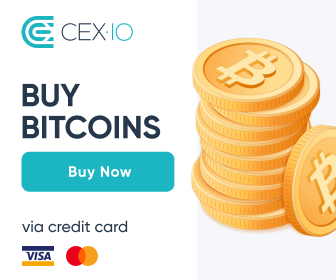
What is DeFi? Why do we need Decentralized Finance?
Decentralized Finance (DeFi) is a decentralized, open-source, and trustful ecosystem of financial applications and services based on a public blockchain, generally Ethereum.
The DeFi ecosystem embodies all aspects of financial services and transactions, including lending and trading within decentralized structures. Any Internet user can interact with the ecosystem and manage assets through peer-to-peer (P2P) and decentralized applications (dApps).
Who needs DeFi?
While Bitcoin is a peer-to-peer electronic money system, then DeFi is a peer-to-peer electronic financial instrument system. The ecosystem of decentralized finance can provide anyone with access to traditional financial services, eliminating the need for intermediaries and reducing obstacles to entry.
DeFi applications and services are potentially helpful for residents of countries with underdeveloped or unstable economies. DeFi services are also in demand in developed countries, especially in the lending, investment, and the development of new sources of income.
Benefits of using DeFi
- Decentralization and autonomy
DeFi lacks centralized managing structures: the conducting of business transactions is written in a smart contract. Once the smart contract is running, the DeFi app can run with minimal or no human intervention at all.
- Transparency
The source code of DeFi applications is open to audit, which allows anyone to understand the functionality of the contract or identify bugs. All transactions are public and are pseudo-anonymous by default.
- No limits
Most DeFi applications are available to any internet user.
- Inclusiveness
The DeFi ecosystem is inclusive - anyone can create and use an app. Unlike the traditional financial sector, there are no controllers and accounts that require complex forms to be filled out. Users interact directly with smart contracts through wallets.
- Flexible user experience
The DeFi ecosystem provides a flexible user experience. If the user does not like the interface of the application, he can use a third-party interface or create his own. Smart contracts are like an open API that anyone has the ability to build applications.
Decentralized stablecoins
Stablecoins are cryptocurrencies which value is tied to an underlying asset (such as the US dollar). Stablecoins are backed by fiat currencies, cryptocurrencies (such as ETH), physical assets (such as gold), or a combination of these assets.
USD-backed stablecoins give the right to claim fiat collateral from centralized storage. The value of stablecoins is provided by the issuer itself, and their use is often associated with AML / KYC procedures.
Decentralized Exchanges (DEX)
A decentralized exchange (DEX) is a blockchain-based exchange that does not store users' funds and personal data on its servers and acts solely as a platform for matching orders to buy or sell assets.
Decentralized exchanges offer a new model for trading and exchanging assets, eliminating KYC procedures, dependence on a third party, and oligopoly (a market with a limited number of large players).
Peer-to-peer prediction markets
Prediction markets are platforms that allow you to bet on the outcome of events, games, elections, and more. Many jurisdictions prohibit gambling and betting on certain events, including elections, sports, court proceedings, and other controversial events.
Prediction market platforms and applications rely on the wisdom of the crowd to determine the likelihood of a particular outcome. The data of modern scientific research supports the concept that a large number of people (crowd) always predict the consequences of certain events with greater accuracy than individual experts.
Augur is a platform for creating peer-to-peer prediction markets where anyone can place bets. The Augur protocol allows you to buy and sell shares of a potential profit.
Security Token Offering (STO)
STO platforms decentralize the process of issuing or creating securities, which in the traditional finance sector requires the involvement of intermediaries such as investment banks.
The equivalent of the securities market in the DeFi sector is the market for tokenized securities (security tokens). STOs imply the issuance of digital assets in full compliance with legal requirements, which provides a higher degree of investor protection and a reduction in regulatory risks for issuers.
If during the ICO participants are usually being offered utility tokens, then in the case of STOs, issued tokens have properties of securities and meet the requirements of securities legislation. They are typically backed by assets or a right to a portion of the profits of the issuing company, can be an investment, debt, derivative, or digital portion of an asset, and, as the name suggests, are generally recognized as securities.
The advantage of security tokens is the ability to divide the underlying asset into small units, which makes it more liquid and accessible to investors (“fractional ownership”). For example, instead of investing in the purchase of an apartment for a subsequent lease, an investor can buy a token representing a share in such an apartment and giving the right to receive a proportional part of the income from its lease. Moreover, despite the low liquidity of real estate as an underlying asset, the liquidity of tokens can be high.
Today, there are a number of platforms that provide users with tools for issuing tokenized securities, validating subsequent transactions, an interface and functionality for interacting with investors, and conducting corporate events such as buyouts, dividend payments, voting, etc. (Polymath, Tokeny, Harbor, Securitize).
Conclusion
Before DeFi was known as decentralized finance, the idea used to be called “open finance.” Today Bitcoin and other digital assets differ from legacy digital payment methods, such as Visa and PayPal, in that they remove all third parties from transactions.
When you pay with a credit card for lunch in the restaurant or buy a new smartphone, a financial institution sits between you and the business, with control over every single transaction you make, retaining the authority to stop or pause it. With decentralized finance, those financial institutions are eliminated from our life.




